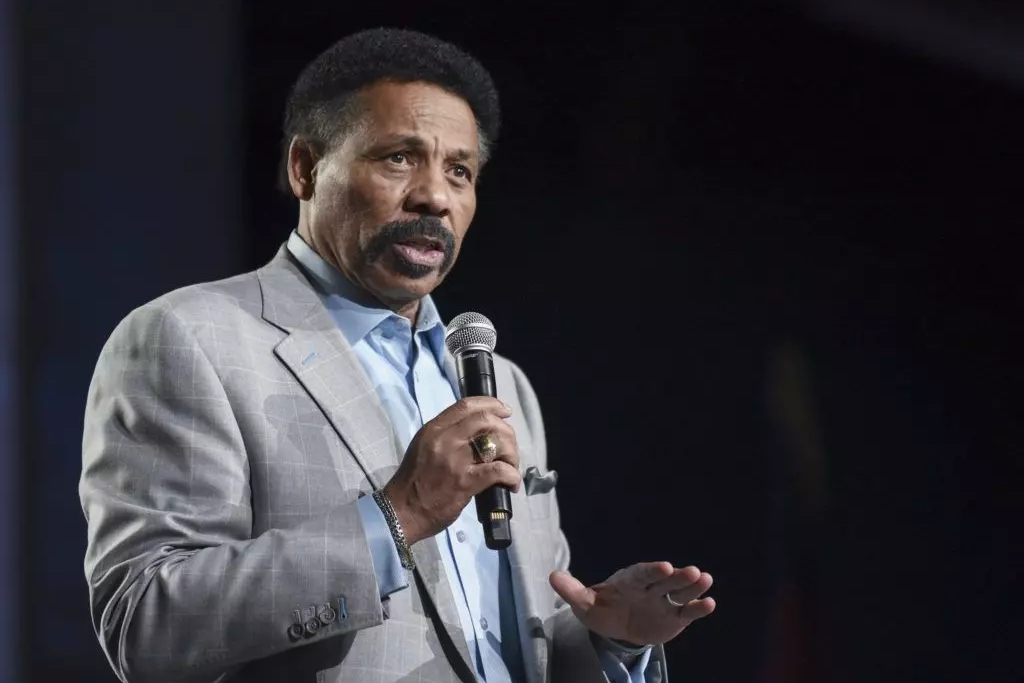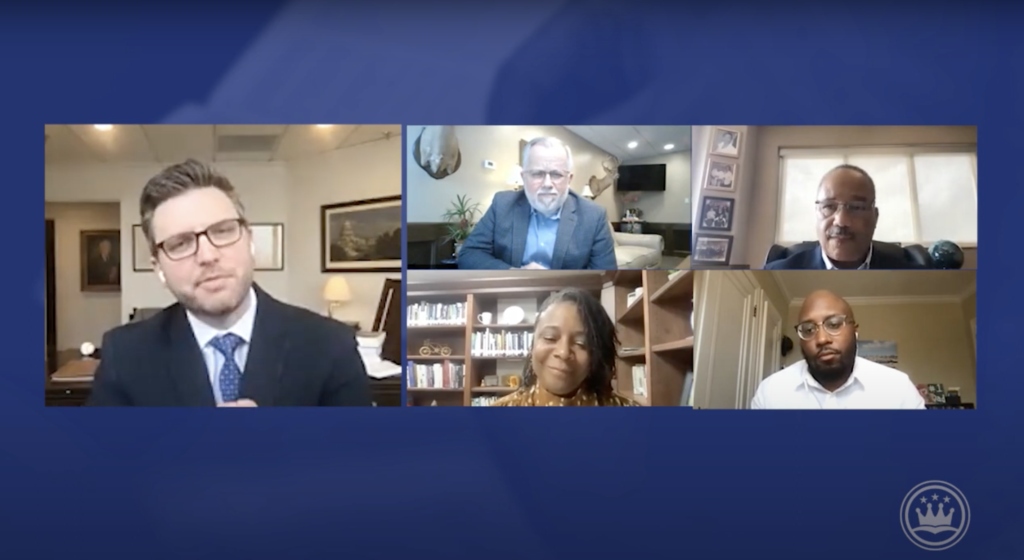
Renowned pastor and author Tony Evans joined SBC President Ed Litton and former SBC President Fred Luter to announce an initiative to build racial unity nationwide, conducted by the local church, called The Unify Project. The Unify Project will work in concert with The Urban Initiative, a ministry Evans co-founded in 1981 with his late wife, Lois.
Fred Luter, the lone African American to have served as president of the Southern Baptist Convention (SBC), sees great opportunity in the Unify Project, a new national grassroots racial unity initiative he’s leading with former SBC President Ed Litton and Dallas-area pastor Tony Evans.
“It would allow us to show that it is possible, according to the scripture, for brothers and sisters to come together—of different backgrounds, ethnicities and cultures—and be the church that Jesus died for,” said Luter, senior pastor of Franklin Avenue Baptist Church in New Orleans, La. “He died for everyone.”
Luter, Litton and Evans announced the Unify Project at the 2022 SBC annual meeting in Anaheim, Calif., with plans to launch the pastor-driven program in the fall, backed by a diverse core steering committee.
Litton, pastor of Redemption Church in Mobile, Ala., said the initiative extends beyond Black and white cultural groups.
“It’s important to stress, too, because we have received some questions about this, that this isn’t just an African American (and) Anglo American experience,” Litton said, but includes Asian Americans, Hispanic Americans, Native Americans and “all sorts of divisions racially in our culture.”
Evans, senior pastor of Oak Cliff Bible Fellowship in Dallas, Texas, and a noted author, theologian and radio host, will help lead the Unify Project in concert with The Urban Alternative, a ministry he co-founded in 1981 with his late wife, Lois.
Within a short time following the announcement in Anaheim, Litton said, the initiative drew more than 2,000 requests for information on the program (available by texting “Unify” to 63566), and more than 1,000 requests for information registered at Unifysbc.org.
“I think it expresses what has been a deep current within the SBC for the last five years, and that people see this. They have a desire for it, but they lack a plan and a strategy,” Litton said. “And one of the things we set out to do was to say, ‘let’s not talk about, let’s not over-debate the subject as it is in our culture. Let’s just see what the gospel tells us to do. What does the gospel expect the Lord’s church to do?’”
Luter describes Unify as an opportunity for the SBC to lead in unity at a particularly divisive time in the U.S.
“This is one that every one of us who are real, true believers in Jesus Christ can come together and support. It would be great that the Southern Baptist Convention would be known [as] a convention that comes together to unify people, and not to divide people,” Luter said. That’s what I hope [will] happen. Because this racial issue is something that’s happening across the country.”
The program will allow pastors to build meaningful cross-cultural relationships that could impact the nation, Luter said.
Litton saw the fruits of such a program in Mobile, Ala., through The Pledge Group, which he helped launch with an ecumenical Christian group of pastors and leaders in the city after the murder of George Floyd. The Mobile group has seen positive progress in confessing hidden racism and building gospel-unified cross-cultural relationships, Litton said in a video shared in the SBC annual meeting.
Evans had laid the fault of racial disunity at the doors of the church.
“When it comes to our racial divide, it was the failure of the pulpit and the failure of the church, which has put us in this ignominious situation today,” Evans said in Anaheim. “And we are told in 2 Chronicles (Chapter 15) that only when they came together in unity did God bring them rest, verse 15 says, to the distress that was in the land.
“The political, the social, the racial, the class distress that we are facing, that has helped to be caused by the church, can only be properly dissolved by the church,” Evans said. “If God can’t get the church right, the culture can never become right.”
Luter encourages pastors to register for the program and lead their churches in building cross-cultural relationships.
“In 2012 (the first year Luter was elected SBC president), that was one of the main things we tried to encourage,” he said of the SBC. “And unfortunately, it comes and goes, comes and goes, comes and goes. But we’ve never really put any teeth to it, never really put any boots to the ground. So I think I would encourage pastors, listen, it’s time to stop talking this unification thing and let’s start walking it. And this is a way that we can make it happen.”
Details of the Unify Project are available at Unifysbc.org and by texting “Unify” to 63566.
(EDITOR’S NOTE – Diana Chandler is Baptist Press’ senior writer.)

